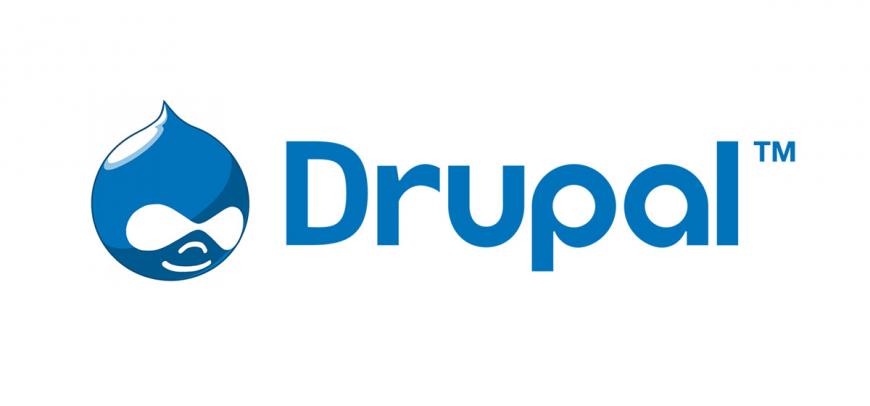Drupal is an open source stacked with several features that make it the best option for all accessible open source CMS (content management system) applications. It makes the undertaking of website planning so simple and magnificent that you can construct a Drupal based website in light of your own. There’s an enormous market of themes and modules accessible for Drupal that can help you to develop your next web project quickly.
Table Of Content
The Top 10 Drupal CMS advantages
1) As an open source platform, there are many Drupal CMS advantages and it gives license-free access along with enabling customization. It also doesn’t require any class of advancement in work. Anyone can access and modify its source code, making it prominent that it has a lot of open-source CMS benefits. It doesn’t restrict any program from being used, underscoring open‑source CMS benefits as a part of a work-related or private utilization.
2) You can begin with 5 pages and develop up to 5000 pages—demonstrating Drupal scalability advantages. Execution and Security parameters without much stretch overseen from the Admin support. A portion of the world’s high movement destinations like the Grammys, White House, Nascar all keeps running on Drupal.
3) Clean code, effective modules and cutting edge publishing make Drupal an exceptionally SEO‑Friendly CMS, reflecting benefits of Drupal. There are obviously an extensive variety of outsider SEO modules you can connect to Drupal to take your SEO activities to the following level.
4) Drupal doesn’t require any specialized capacity for coding (like HTML coding). If you are unaware of programming and coding language, then also you can design a website in Drupal very easily. If you can craft a variety of transformations on your website, simply use a web program like Internet Explorer, Firefox, Chrome, etc. You can even copy and paste text from MS-Word or any other text editor as it is.
Related: 20 Best and Free Responsive Drupal Themes
5) Thousand of free Modules (36,000+) are accessible in the community that will help you to add particular features to your websites. From CRM, Security, Social Media for SEO, Performance, Backup/Migrate and that’s only the tip of the iceberg. Consider modules Lego Blocks – rapidly add them to construct your online website.
6) Modules in Drupal like user administration, distributing work process, news aggregation, meta-information scalability is totally prepared for all obligatory future scalability. Additional choices like websites/ blogs, discussions, online business, and calendar can get executed positively at a time in the future. Furthermore, multitudes of third party modules can be looked over to develop Drupal.
7) A huge community of theme designers has designed outstanding templates that will help you to understand your website’s vision. Aesthetics, fonts, responsive layouts, stock graphics, adjustable color schemes and layout editors make working with 3rd party themes a breeze. You can simply discover one to suit your image personality Or simply build your own.
8) Effortlessly interface with the web’s driving 3rd party administrations and APIs to expand your Drupal Website. Social networking integration is also widely supported to help you engage with a wider audience. One of the notable benefits of Drupal is that this platform allows your website to connect with external media and file services.
9) Drupal increases website value through numerous modules, mambots and so on featuring the extensive customizability of Drupal CMS in action. You can assemble any sort of website with Drupal without any limitations. You can work with an inconvenience free static website, a private landing page to word related website, dating website, weblog, Myspace-like website, all depends upon your creative energy and need.
10) It’s 100% free. As open-source software, it shows the cost-effectiveness of Drupal in the long run. Hence, you don’t need licenses, recurring fees, or anything proprietary. Just install the CMS files on your server and you’re good to go.
Features Related to Security in Drupal
A key advantage of the Drupal CMS is its well-defined security system. Drupal CMS has a specialized security team that resolves and patches vulnerabilities. Drupal security features protect your website against clickjacking, CSRF attacks, SQL injection, and XSS attacks.
With modules like Security Kit, developers are assisted in enforcing a sound security policy by allowing various site hardening options. Another important module is reCAPTCHA, which protects forms against spam and abuse. There are also modules for encrypting databases, which protect sensitive user information from unauthorized access.
Site security is also maintained by following proper site policies, including performing regular site and module updates, maintaining a secure site configuration, enforcing limited access for administrators, actively monitoring roles, and reviewing log files. For reliable, secure, and scalable content management, these features enable Drupal to be the primary option for Government, enterprises, and e-commerce websites.
Real-World Use Cases of Drupal Scalability and Performance
In this table, we captured high-traffic Drupal-powered sites and their technical implementations for multisite architecture, CDN integration, and caching to demonstrate Drupal’s advantage and scalability.
| Real-World Example | Description | Drupal Feature Used |
| NASA.gov | Handles millions of global visits with live mission data | CDN, aggressive caching, distributed hosting |
| The Economist | High-traffic publishing site requiring fast load times | Advanced page caching, Varnish, CDN |
| University of Oxford | Manages 100+ departmental sites under one umbrella | Multisite architecture, centralized updates |
| Tesla Motors | Product showcases, media, and dynamic content delivery | CDN, custom modules, Redis caching |
| Australian Government (GovCMS) | Centralized platform for multiple government departments | Multisite, enhanced security, CDN integration |
| Entertainment Weekly (EW.com) | Multimedia-heavy portal with videos, articles, and real-time news | Media caching, CDN, scalable backend hosting |
In short, Drupal web development empowers designers to make a component rich, superb website that satisfies every one of the prerequisites of their customers. Then again, organizations can get the dynamic and inventive websites to tempt clients.
MilesWeb Hosting company has a secure and powerful Web Hosting service, offers shared hosting, cloud hosting, VPS hosting, dedicated hosting, WordPress hosting and much more. So for Drupal hosting, MilesWeb is the right platform for you.
FAQs
1. What is the difference between Drupal security and the security practices of other CMSs like WordPress?
Drupal is very popular for maintaining security at an enterprise level. Unlike WordPress, which is notorious for having constant security breaches, Drupal has a preventative built-in security system, a security team that issues guidance, and regularly implemented security patch updates. Profile-level access, database encryption, certain modules, and the Security Kit add extra protections on top of the built-in protections.
2. What about large-scale enterprises or websites for complex digital experiences – is Drupal suitable for those?
Absolutely, large corporations carry out complicated digital activities seamlessly with the help of Drupal. Custom workflows, multilingual support, and advanced integrations are powered by Drupal’s robust APIs and modular, flexibly structured content. Also, constant performance optimization and Drupal’s strong scalability are other advantages.
3. What makes overlooked Drupal features scalable for increased traffic and additional content?
Drupal has the ability to scale seamlessly to quickly accommodate heavy traffic, process large amounts of data, support millions of users, and support thousands of pieces of content. Drupal’s built-in caching features, including BigPipe, CDN Integration, Database Replication, and Load Balancing, support these functionalities.
4. What are the notable features of Drupal’s community open-source collaboration?
Drupal’s lack of licensing fees, along with the community’s requirement of zero restrictions, allows for transparency of code, customization, and modification. Furthermore, Drupal’s continuous development for security patches, offered modules, and performance improvements is driven by the global community of designers and developers. This community collaboration allows for a nurturing and agile platform for Drupal.















